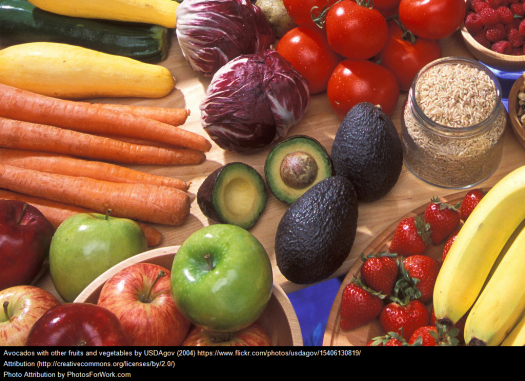By Dr. Karen Chapman-Novakofski
I like vegetables, almost all of them. I like them raw, roasted, steamed, and in casseroles. I like to grow vegetables, especially carrots and tomatoes. When I plan dinner, there is always a vegetable included. However, the meal centers around a meat dish and lunches may not include a vegetable.
If taste is a major determinant of the foods we choose, and I like the taste of vegetables, then why is it so hard to take those steps towards a plant-based diet? Cost is another determinant of the foods we choose, but vegetables are not as expensive as meat or higher protein foods, depending on the vegetables I choose. So, it must still be taste, because I like the taste of meat.
As a scientist and dietitian, I know that a plant-based diet is healthy. A recent systematic review and meta-analysis concluded that plant-based diets are associated with lower blood lipids (except triglycerides) and cholesterol as compared to diets including meat. 1 Plant-based diets have also been associated with some, but not all, inflammatory markers related to obesity. 2 Other benefits will be described in our webinar: Plant-based Eating: Enhancing Health Benefits, Minimizing Nutritional Risks. Unfortunately, many Americans, myself included, do not always eat for health benefits.
So, how do we move ourselves towards a plant-based diet? Set an achievable goal. Perhaps planning one plant-based meal per week. Don’t have good plant-based main dish recipes? Several good, simple recipes are included in the recipe catalog of the University of Illinois Extension. 3 Let’s Get Cooking cookbook by Cornell Extension Service has a whole section on Meatless meals.4 You can also create your own cookbook using USDA’s What’s Cooking? USDA’s Mixing Bowl.5
So, to answer the question – why is it so hard? – we just need a nudge:
- Set a goal that you can live with, even if it is to try one plant-based meal.
- Pick out a recipe and add those ingredients to your grocery list.
- Cook and enjoy, and then congratulate yourself on achieving your goal!
References:
- Yoko Yokoyama, Susan M. Levin, Neal D. Barnard; Association between plant-based diets and plasma lipids: a systematic review and meta-analysis, Nutrition Reviews, Volume 75, Issue 9, 1 September 2017, Pages 683–698, https://doi.org/10.1093/nutrit/nux030
- Eichelmann F, Schwingshackl L, Fedirko V, Aleksandrova K. Effect of plant-based diets on obesity-related inflammatory profiles: a systematic review and meta-analysis of intervention trials. Obes Rev.2016 Nov;17(11):1067-1079. doi: 10.1111/obr.12439. Epub 2016 Jul 13.
- Let’s Eat for Health Illinois. https://web.extension.illinois.edu/
- Let’s Get Cooking. https://s3.amazonaws.com/assets.cce.cornell.edu/attachments/579/Lets-Get-Cooking-2012-rev-sher1.pdf?1400254443
- What’s Cooking: USDA’s Mixing Bowl. https://whatscooking.fns.usda.gov/
This blog was posted by Robin Allen, a member of OneOp (MFLN) Nutrition and Wellness team that aims to support the development of professionals working with military families. Find out more about theOneOp Nutrition and Wellness concentration on our website on Facebook, on Twitter, and LinkedIn.















